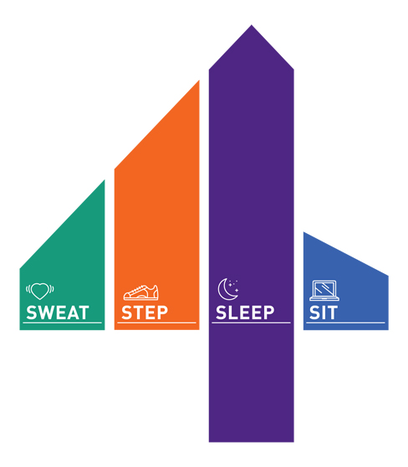Adequate sleep improves mood, attention and memory.
Adequate sleep improves health. It helps to prevent type 2 diabetes and other chronic diseases like high blood pressure and heart disease. It also improves your overall wellbeing.
On the other hand, lack of sleep can worsen existing health problems. It increases the chance of falling and affects normal day-to-day functioning.
It is common for older adults to experience changes in the quality and duration of their sleep. It is mostly due to changes in the body’s internal clock. Keeping good life habits and sleep habits can help to adapt to those changes.
Adequate sleep improves health. It helps to prevent type 2 diabetes and other chronic diseases like high blood pressure and heart disease. It also improves your overall wellbeing.
On the other hand, lack of sleep can worsen existing health problems. It increases the chance of falling and affects normal day-to-day functioning.
It is common for older adults to experience changes in the quality and duration of their sleep. It is mostly due to changes in the body’s internal clock. Keeping good life habits and sleep habits can help to adapt to those changes.

Canadian Daily Sleep Guidelines: Older Adults
A healthy 24 hours includes physical activity, sedentary behaviour, healthy eating, and sleep
A healthy 24 hours includes physical activity, sedentary behaviour, healthy eating, and sleep
- Try to have 7-8 hours of sleep on a regular basis
- Try to have consistent bed and wake-up times
TIPS:
Preparing for sleep
- Create a relaxing bedtime routine. Chose activities that you like and make you relax. Repeat them every night, in the same order.
- Routine creates a pattern that your brain recognizes and links to sleep.
- Be consistent. Have regular bedtime and wake up time. Try to not change it too much on the weekend.
- Turn off electronic devices 30 minutes before bedtime.
- Avoid bright lights close to bedtime.
- Avoid stressful tasks (work, chores, arguments etc.) close to bedtime. Having at least 30 minutes to relax at the end of the day helps to get you in the right mood for sleep.
- Avoid a large meals, alcohol, or caffeinated beverages close to bedtime. No caffeine should be taken 6 hours before going to bed as it decreases quality of sleep.
- Remove televisions and computers from the bedroom. Your brain should “see” your bedroom as a sleeping room.
- Do not use your cellphone after you get into bed. Electronic devices emit blue light, which has been shown to reduce or delay the production of melatonin in the evening. Melatonin is the hormone that makes you feel sleepy. Blue light has also shown to have an impact on sleep stages. Overall, blue light at night decreases sleep quantity and quality.
- Try to sleep in a quiet environment. If it is not possible, try ear plugs or even a fan to drown out other sounds.
- Create a comfy environment. Try to make your bedroom comfortable, dark and with a cool temperature.
- End your day on a good note. Catching yourself thinking about bad things that happened during the day? Shift your mind towards positive thoughts. Find 3 positive things that happened today or put yourself back in a situation where you felt happy and relaxed.
- Don’t Toss and Turn: It helps to have a healthy mental connection between being in bed and being asleep. For that reason, if after 20 minutes you have not fallen sleep, get up and stretch, read, or do something else calming in low light before trying to fall asleep again.
- Reduce the chance of falling at night: have a light within reach for when you must get up at night. Remove objects on the ground on which you could trip.
- Restrict in-bed activity. It is good to build a link in your mind between sleep and being in bed.
- Get your daily physical activity. It helps to improve good quality sleep. For more information, see our movement section.
- Get daily exposure to sunlight, especially in the morning.
- Avoid drinking too much caffeine during the day. No caffeine should be taken 6 hours before going to bed as it decreases quality of sleep.
- If you take naps, try to not take them too long or too late in the day. For most people, the best duration for a nap seems to be 10-20mins. The best time to nap is halfway between when you wake up and when you go to bed.
